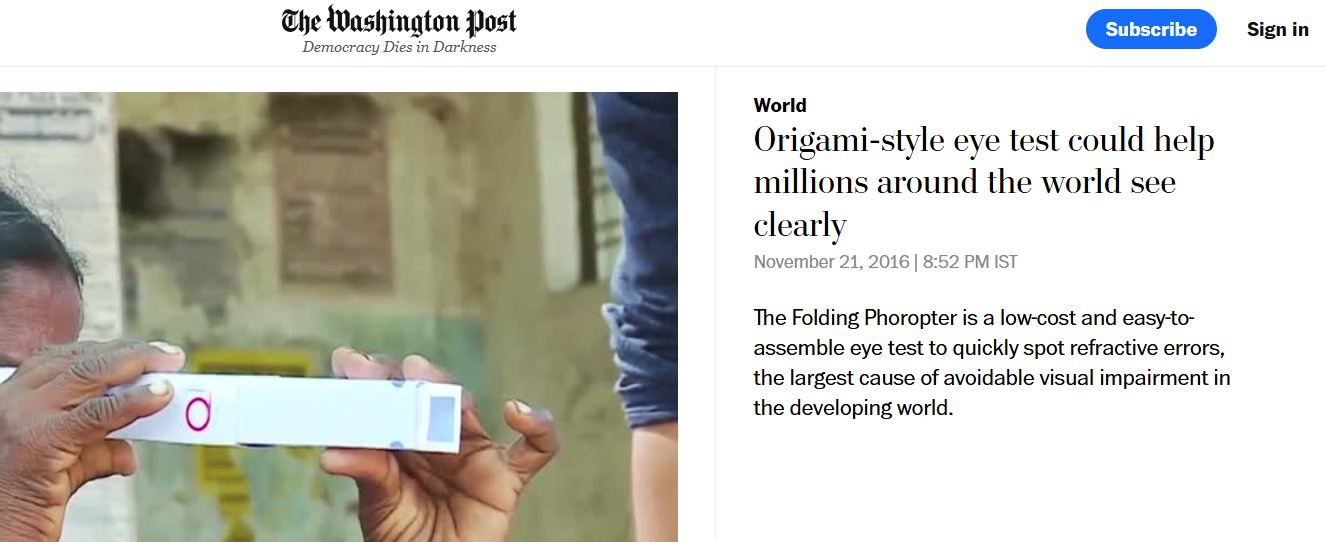Folding Phoropter
The Folding Phoropter previously called Folding Foropter is a origami-based novel device developed by my team and me to combat the disproportionate access to tools for screening for refractive error in low-resource areas. This device is extremely low-cost, disposable, easy to assemble, and open-source, which means anyone can build their own following the instructions.
Inspired by Dr. Manu Prakash's "Foldscope" and the Google Cardboard, we reimagined a phoropter as the most basic screening device that could be easily and scalably fabricated, improved upon, and used to improve eye care.
The Need
More than 2.3 billion people in the world suffer from poor vision due to refractive errors (REs). Uncorrected REs are the largest cause of avoidable blindness in the developing world.
Visual impairment can have immediate and long-term consequences in children and adults, such as lost educational and employment opportunities, and impaired quality of life. REs can simply be diagnosed, measured, and corrected with the aid of optical corrective approaches and devices such as spectacles and contact lenses or by refractive surgical procedures. Current data suggests that more than 90% of people with uncorrected REs worldwide reside in rural and low-income countries
USABLE BY ALL
The lenses need to be placed in their designated positions and fold along the lines. The two parts line up inside one another, resembling a telescope. The patient needs to look through the device a fixed distance away from the designated target, and move the outer chamber inwards until the image just comes into focus.
EASY TO ASSEMBLE
Our device is extremely easy to assemble, it can be put together in a matter of minutes without prior training. Simple origami is needed, similar to folding a takeaway parcel box or an envelope.
I have built an app, that can give the effective power of the system, if the user inputs the distance between the lenes. You can find more about it here
Team
Sandeep Vempati - Initial Model, Optics, Scale
Veerendranath Pesala - Ideation
Ashish Jain - User Interaction, Scaling, Validation
Aadya Krishnapad - Visual Interaction
Media Coverage
BUY HERE
BUY HERE
https://lvpeyebuy.com/product/folding-foropter/








